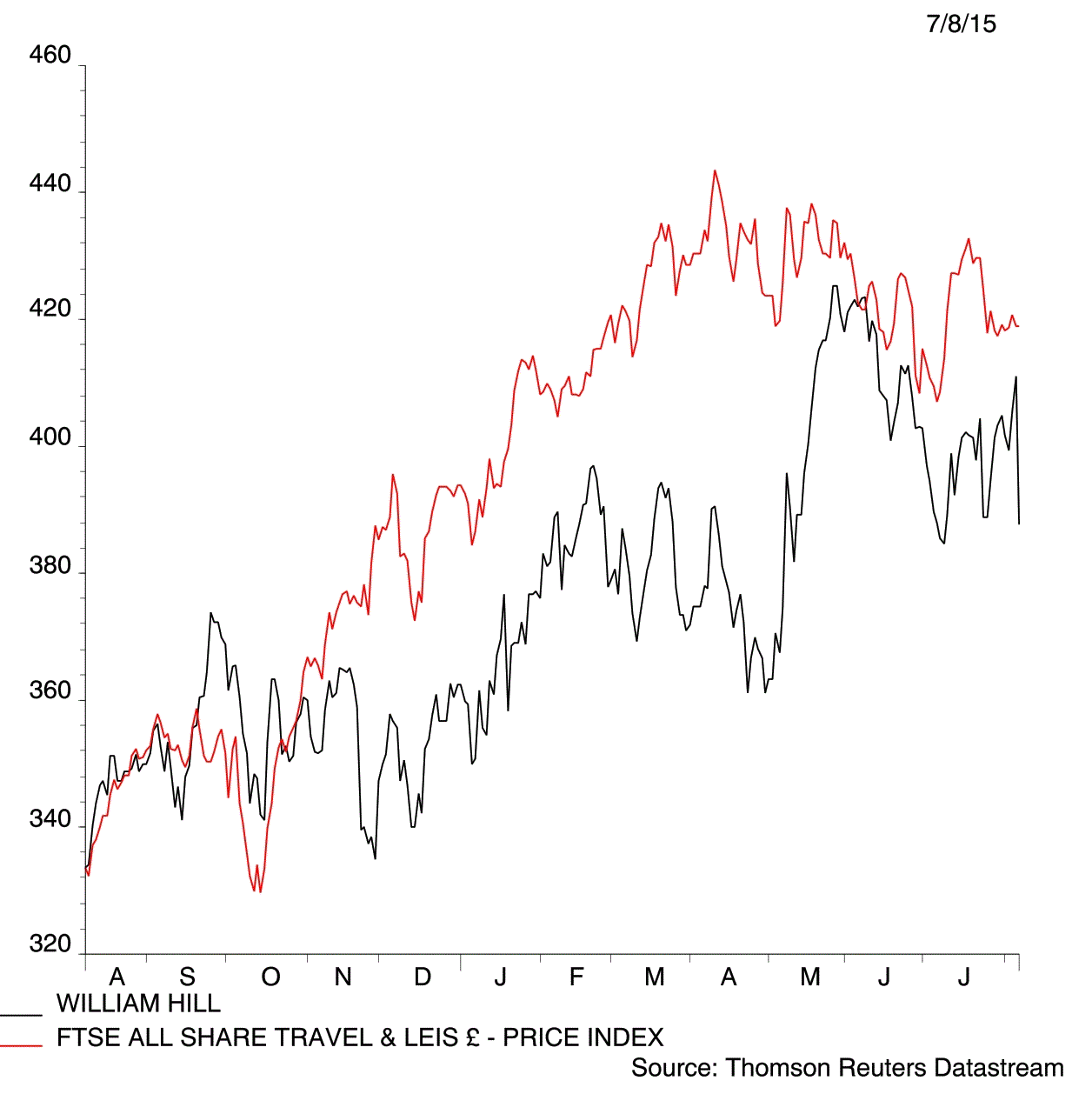
Profits at William Hill (WMH) have tumbled by more than a third following a huge increase in the bookmaker’s tax bill and weak trading in its core retail division.
Pre-tax profit is down 35% to £78.7 million in the first half, which the company blames on the additional £44 million tax hit from the Point of Consumption Tax and increased Machines Games Duty.
Shore Capital analyst Greg Johnson says underlying profit excluding the tax hit is ahead, which reflects volume growth online and tight cost control across the group. Investors aren’t convinced, with the shares trading 4.7% lower at 391.5p.
We warned in yesterday's issue of Shares that the market wouldn't like the bookmaker's results. By reading the magazine each week, and our website every day, you can get the edge over fellow investors.
As well as the extra tax burden, the £3.6 billion cap saw a 4% drop in the amounts wagered over the counter in its shops, which comprise 55% of group revenue.
Net retail revenue is down 3% to £448.9 million following the implementation of the ‘£50 journey’ limit on gaming machines in April.
William Hill has also been struggling in Australia, where net revenue is down 10% and operating profit is 7% lower at £9.8 million. This is due to the group increasing its focus on the William Hill brand at the expense of Centrebet and tomwaterhouse.com.
The amounts wagered in the online business have grown by 10% with revenue up 7%. Its gross win margin is slightly better at 7.3% despite a substantial loss-making week in the first quarter and weak Cheltenham and Grand National results.
William Hill says the introduction of the national living wage will cost it between £1 million and £2 million in 2016.
It has also announced the purchase of a 29.4% stake in US-focused online lottery firm NeoGames for £16 million. Chief executive James Henderson says the deal gives it access to a new market that is increasingly attractive to gambling customers.





